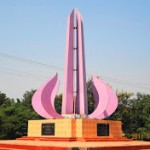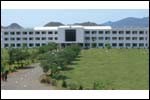Journalism and Media Berhampur University
The Berhampur University came into existence on 2nd January 1967 being inaugurated by Dr. A.N. Khosla, the then Governor of Orissa and the first Chancellor of the University. The University was later shifted to the present site known as Bhanja Bihar, named after the celebrated poet of Orissa Kabisamrat Upendra Bhanja. Spreading over an area of about two hundred fifty acres the university is twelve kilometres and 5 kilometers away from the Berhampur City and Sea-beach of Gopalpur respectively.
The university has a wide area under its jurisdiction comprising the districts of Ganjam, Gajapati, Koraput, Rayagada, Nowrangapur, Malkangiri, Kandhamala and Boudh. Eleven Govt. colleges, sixty two non Govt. colleges and twenty six professional technical colleges are affiliated to the university. To the credit of the university these institutes cater to the need of students in various subjects and disciplines such as Arts, Science, Commerce, Law, Education, Medicine, Engineering, Pharmacology, Homoeopathy, Ayurveda, Nursing, Military Science, Library Science and Fine Arts.
There are twenty post-graduate departments in the university offering specialized subjects and M. Phil programmes. Some of the faculties like Mass Communication, Tourism and Indian Monuments, Electronic Science, Computer Science, Marine Science, Military Science make the University stand apart from some other universities of the country.
The university has achieved great distinction in the academic world due to the qualitative and quantitative production of M. Phil., Ph.D., D. Litt and D. Sc degrees. So far many projects, major and minor funded by the U.G.C., I.C.S.S.R., C.S.I.R. and D.S.T. etc. have been completed. About two hundred fifty research oriented and text books have been published by the teachers. The university has the record of holding seminars and conferences every year apart from organising weekly seminars in the departments. Several U.G.C. sponsored Refresher Courses/Orientation Programmes/Summer Institutes are conducted in the university for the benefit of the university and college teachers.
With all such multifarious academic activities the university has so far received reciprocal recognition from many Indian universities. It is a permanent member of the Inter University Board of India and Sri Lanka as well as that of the Association of Common Wealth University of London. The University has got NAAC accrediation with a rating of B+.
At present the Campus has eight teaching blocks, eight hostels, a health centre, an Engineering Office, a guest house, an M.E. School, a High School/Junior College, a Library, a Museum-cum-Archival Cell, a landing ground, a Play ground, a Sports Council centre, a shopping complex, a Canteen, an S.B.I. Branch, a Post Office, three temples and an Administrative Building with a Distant Education Cell and a College Development Council.
On the whole for past many decades the university has remained as the symbol of glory and prosperity for the people of South Orissa. Though the university has completed 40 years and has carved for itself a place of pride in the academic map of the country, yet it has miles and miles ahead to go in the service of the students, scholars and society and the country at large.
Business Administration: MBA,Ph.D,D.Litt
Commerce: M.Com,M.Phil,Ph.D,D.Litt
Political Science: M.A,M.Phil,Ph.D,D.Litt
Mass Communication & Journalism : M.A,Ph.D,D.Litt
http://www.buodisha.edu.in/
Berhampur University, Berhampur-760007,Odisha,India For Enquiry Contact Ph No. +91-680-2227333



